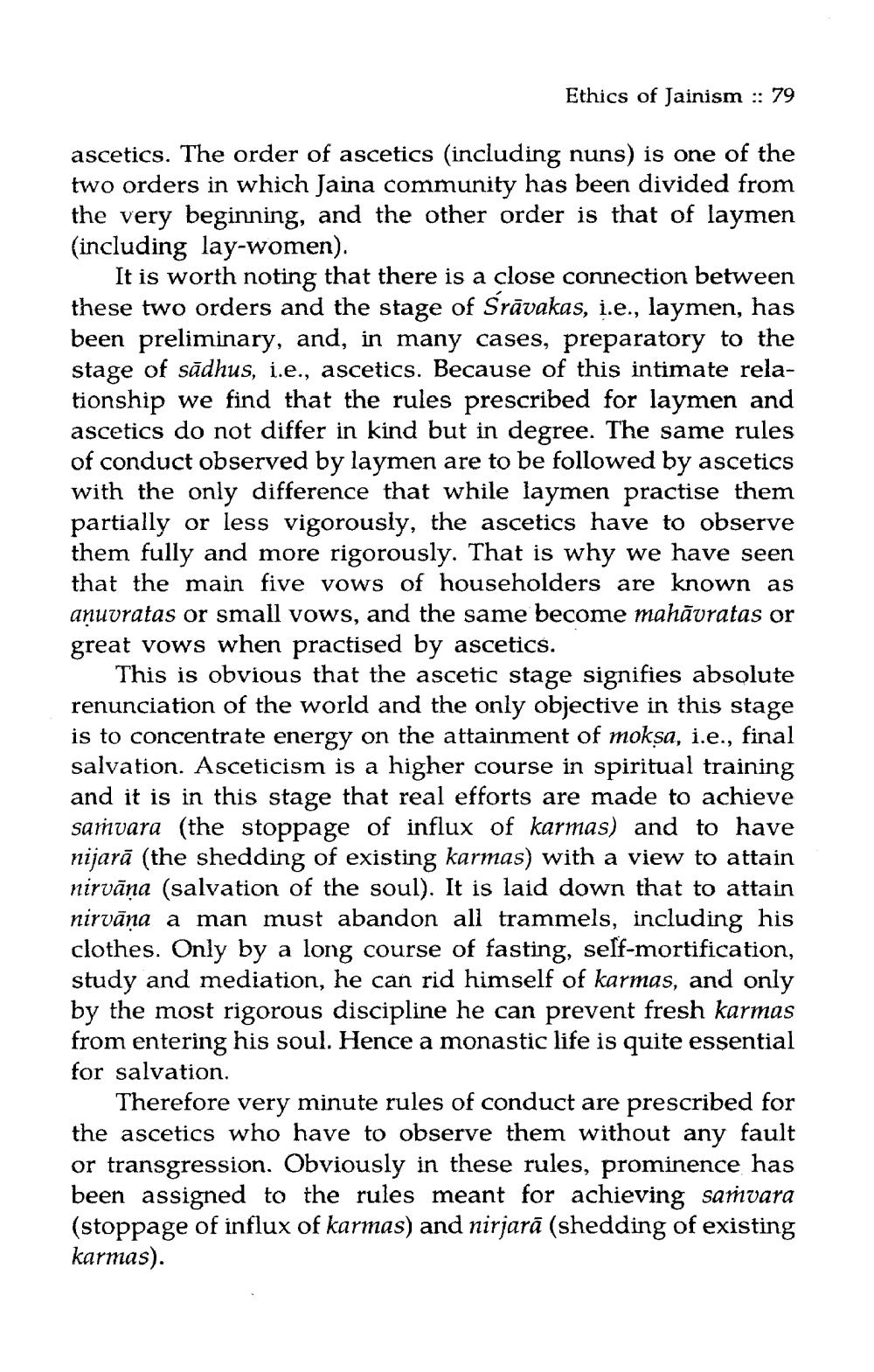________________
Ethics of Jainism :: 79
ascetics. The order of ascetics (including nuns) is one of the two orders in which Jaina community has been divided from the very beginning, and the other order is that of laymen (including lay-women).
It is worth noting that there is a close connection between these two orders and the stage of Srāvakas, i.e., laymen, has been preliminary, and, in many cases, preparatory to the stage of sādhus, i.e., ascetics. Because of this intimate relationship we find that the rules prescribed for laymen and ascetics do not differ in kind but in degree. The same rules of conduct observed by laymen are to be followed by ascetics with the only difference that while laymen practise them partially or less vigorously, the ascetics have to observe them fully and more rigorously. That is why we have seen that the main five vows of householders are known as anuvratas or small vows, and the same become mahāvratas or great vows when practised by ascetics.
This is obvious that the ascetic stage signifies absolute renunciation of the world and the only objective in this stage is to concentrate energy on the attainment of moksa, i.e., final salvation. Asceticism is a higher course in spiritual training and it is in this stage that real efforts are made to achieve samvara (the stoppage of influx of karmas) and to have nijarā (the shedding of existing karmas) with a view to attain nirvāna (salvation of the soul). It is laid down that to attain nirvāṇa a man must abandon all trammels, including his clothes. Only by a long course of fasting, self-mortification, study and mediation, he can rid himself of karmas, and only by the most rigorous discipline he can prevent fresh karmas from entering his soul. Hence a monastic life is quite essential for salvation.
Therefore very minute rules of conduct are prescribed for the ascetics who have to observe them without any fault or transgression. Obviously in these rules, prominence has been assigned to the rules meant for achieving samvara (stoppage of influx of karmas) and nirjarā (shedding of existing karmas).




